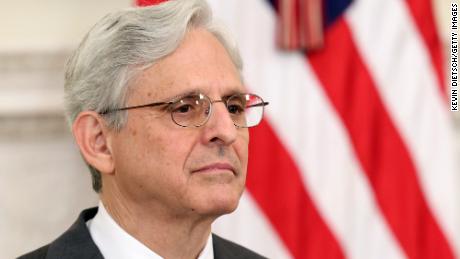Lawmakers will be questioning Garland at the same time the full House prepares to approve a criminal contempt resolution for Steve Bannon. The move that will put before the department a decision on whether to prosecute the adviser to former President Donald Trump for his refusal to cooperate in the House’s January 6 insurrection investigation.
In addition to the Bannon contempt referral, lawmakers may seek to question Garland about the department’s broader response to the Capitol attack, as it has charged more than 600 people who allegedly participated in the mob.
Committee Chairman Jerry Nadler, according to excerpts of his prepared opening statement shared with CNN, will commend the department “for doing the important work of bringing those responsible for the violence of January 6 to justice.”
“I ask only that you continue to follow the facts and the law where they lead — because although you have rightly brought hundreds of charges against those who physically trespassed in the Capitol, the evidence suggests that you will soon have some hard decisions to make about those who organized and incited the attack in the first place,” the New York Democrat will say.
In addition to the department’s work on the January 6 prosecutions, committee’s Democrats are also supportive of the DOJ’s decision to bring a lawsuit challenging Texas’ six-week abortion ban, as well as its moves on police reform and hate crimes. But Garland has not entirely escaped Democratic skepticism. Earlier this year, the committee’s majority questioned the department’s move to keep alive a Trump-era effort to shield the former president from a defamation lawsuit.
As both the congressional and Justice Department investigations into the Capitol breach roll along, Republicans have sought to focus attention on DOJ’s handling of antifa-related violence, which some GOP lawmakers have equated to the attack on Congress’s election certification vote. They’ve also critiqued legal guidance put out by the department related to restrictive state election rules.
Garland, a former appellate judge, has in the past pledged his commitment to keep partisanship out of the department’s decisions.
“I have grown pretty immune to any kind of pressure, other than the pressure to do what I think is the right thing, given the facts and the law,” Garland said during his February Senate confirmation hearing. “That is what I intend to do as the attorney general, I don’t care who pressures me in whatever direction.”






